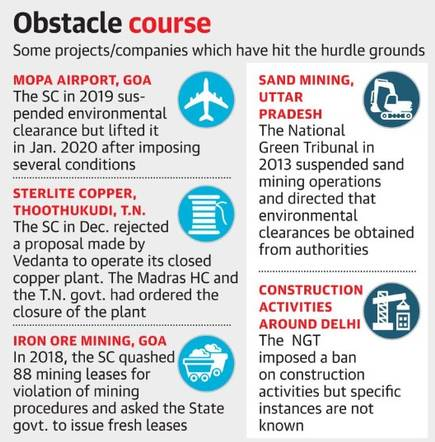Governance
Economic Impact of Judicial Decisions
- 08 Feb 2021
- 5 min read
Why in News
Recently, the NITI Aayog has asked research organisation ‘Consumer Unity and Trust Society (CUTS) International’ to conduct a study on the “economic impact” of various judgments delivered by courts and tribunals and the ‘judicial activism’ of such courts and tribunals.
- Judicial Activism: It implies the assertive role played by the judiciary to force the other two organs of the government (legislature and executive) to discharge their constitutional duties. It is also known as “judicial dynamism”. It is the antithesis of “judicial restraint”, which means the self-control exercised by the judiciary.
Key Points
- Conducting Organization:
- The study is to be undertaken by the Jaipur-headquartered CUTS (Consumer Unity and Trust Society) Centre for Competition, Investment and Economic Regulation, that also has an international presence.
- It is a registered, recognised, non-profit, non-partisan, non-government organisation (NGO) pursuing social justice and economic equity both within and across borders.
- The study is to be undertaken by the Jaipur-headquartered CUTS (Consumer Unity and Trust Society) Centre for Competition, Investment and Economic Regulation, that also has an international presence.
- Objective:
- The objective of the study aims a “narrative building for sensitising the judiciary on the economic impact of their decisions”.
- It is to do an objective cost-benefit analysis of the economic impact of the decisions.
- Projects to be Studied:
- The Study intends to examine five major projects that have been “impacted” by judicial decisions of the Supreme Court (SC) or the National Green Tribunal (NGT).
- Projects to be analysed include the construction of an airport in Mopa, Goa; cessation of iron ore mining in Goa, and the shutting down of the Sterlite copper plant in Thoothukudi, Tamil Nadu.
- The others are decisions by the NGT involving sand mining, and construction activities in the National Capital Region.
- The Study intends to examine five major projects that have been “impacted” by judicial decisions of the Supreme Court (SC) or the National Green Tribunal (NGT).
- Process:
- It plans to do this by interviewing people who have been affected by the closure of the projects, environmental campaigners, experts and assessing the business impact of closure.
- Significance:
- The findings will be used as a training input for judges of commercial courts, NGT, High Courts and SC.
- It would contribute to public discourse among policymakers for promoting an “economically responsible approach by judiciary” in its decisions.
- The study is also a part of the larger umbrella project undertaken by NITI Aayog under which it wants to establish a judicial performance index, which would measure the performance of judges at district courts and subordinate levels.
- Previous Study:
- In 2017, the same CUTS International had also conducted an assessment study on the economic impact of the SC’s decision to impose a ban on the presence of liquor shops within 500 m of any highway.
- The study showed that cases which involve substantial social and economic dimensions need to be studied in detail to assess whether they are implementable in the first place and whether the loss to the economy outweighs the gains envisaged.
- This could be done if Courts set up expert committees to study these aspects which can also engage economists to analyse the cost/benefits before a judgment is pronounced.
- The Supreme Court had established such expert group committees for cases in the past like the Supreme Court Committee on Road Safety under the Chairmanship of Justice K.S. Radhakrishnan in 2014 and Justice Lodha Committee set up in 2015 for reforms within the Board of Control for Cricket in India (BCCI), amongst others.







